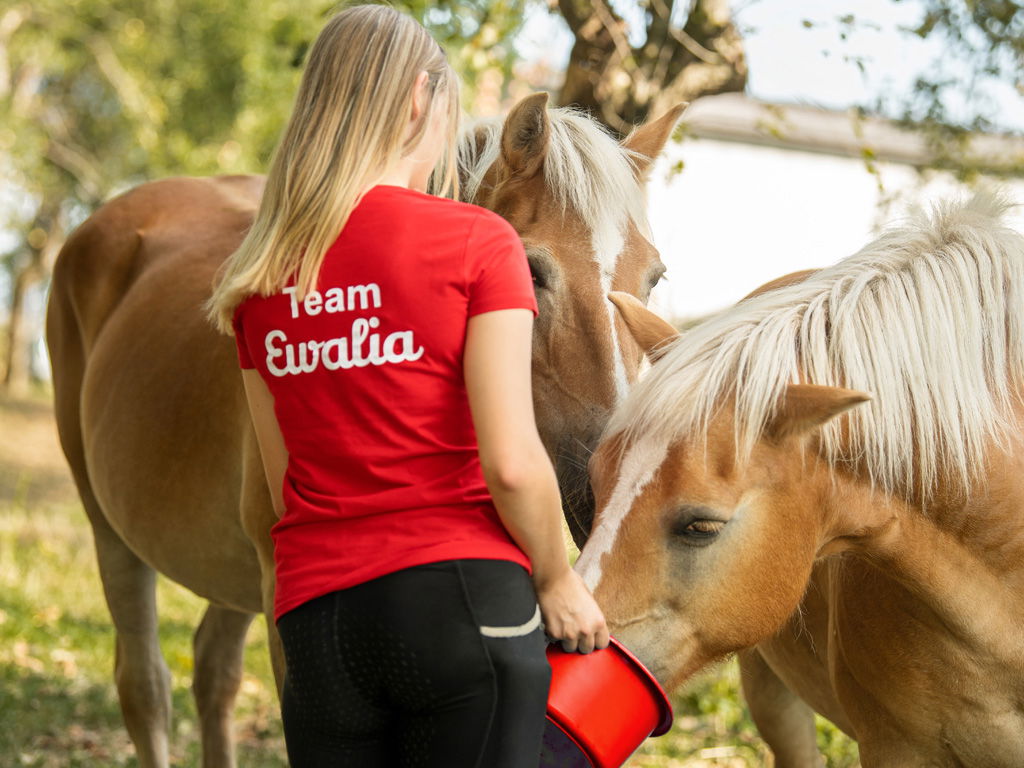Common hops

The hop (Humulus lupulus L.) plant is a clockwise-winding climber from the hemp family Cannabaceae. Like hemp, hops are dioecious. The relationship between hemp and common hops can be seen especially in the male flowering plants. Hops are first associated with brewing beer, but even as a pure herb, hops have a calming effect. Nervous horses benefit from feeding the hop plant.
The relationship between hemp and common hops can be seen especially in the male flowering plants. However, it's the flowers of the female plants that are used, seen hanging down on large vines in autumn. Cultivating hops requires posts with strings. In the wild, the plant is frequently found on embankments and forest edges where it encroaches on the existing vegetation.
Use of hops
When people think of hops, many think of beer. Ever since the 1516 enactment of the brewing laws on which Germany's current Purity Law is based, no herbs other than hops may be used as a wort in brewing German beer. There has recently been renewed popularity in beers containing other herbs like hemp or nettle; however, these are not compliant with the German Purity Law.
Hops is added to beer not only for the taste, but as a preservative. This was recorded even by Hildegard von Bingen. The bitter substances in hops give beer its bitter taste. They also have sedative, antibiotic, and oestrogenic properties. These bitter substances are found in the glandular hairs of the female flowers, which contain a resiny secretion when fully mature. Alongside bitter substances, hops also contain active substances like essential oils, flavonoids, and tannins.
Effect of hops
The Herbal Medicinal Product Committee (HMPC) has classified hops as a traditional herbal medicine. It is used for medically recognised indications such as unrest, anxiety and sleep disorders. The dried hops are often used in combination with other medicinal plants like valerian or lavender. There are various hops teas available on the market, as well as dried extracts in capsule form. The European Scientific Cooperative on Phytotherapy (ESCOP) recommends using hops to treat nervousness and insomnia. Germany's scientific advisory board Commission E also rates the use of hops cones positively. The recommended indications refer to use for restlessness, anxiety, insomnia, and general mood disorders.
Hops are often used together with other herbs to make medicinal herb pillows for aromatherapy. These pillows are placed near the head to release the characteristic scent of hops, promoting relaxation and sleep. In homoeopathy, a mother tincture is used in the form of drops.
In folk medicine, hop plants are also used to treat stomach complaints and to stimulate digestion. The tannins and bitter substances in hops help to stimulate the appetite. Moreover, hops are said to regulate and stimulate menstrual cycles due to the oestrogenic effects of the substances they contain. These indications, however, are not recognised in modern medicine. The German Federal Health Agency (BGA) recommended the use of hops only to help sleep and mood disorders.
There may be contraindications regarding hops use in persons with hypersensitivity and children under the age of 12. Contact with fresh hop flowers can cause "hop pickers' disease", with fatigue, sleepiness, headaches and skin irritations. It is also said that the hops in beer are what causes gynaecomastia, known colloquially as "beer boobs", in men who drink large amounts of beer over a prolonged period of time. This condition, however, is frequently connected with an increase in body fat, as is the case with pseudo-gynaecomastia. There are no studies currently available on the safety of hops use during pregnancy and breast-feeding.
Hops in horse feeding: hops provide tranquility
Animals, like humans, can experience relaxation, calm, and anxiety relief from hops. Hops are used in the form of decoctions, infusions, or extracts to treat irritability, restlessness, anxiety, and nervous gastrointestinal disorders in animals. The recommended average daily dosage is 25 to 50 g for horses and other large ruminants. The recommended average daily dosage for smaller animals is 3 to 5 g. The effectiveness of hops is best achieved in combination with other calming plants like lemon balm, valerian, lavender, or camomile. Giving these to your animal will help to alleviate stress symptoms and bring balance.
Sources
- http://www.koop-phyto.org/arzneipflanzenlexikon/hopfen.php
- https://www.pharmawiki.ch/wiki/index.php?wiki=hopfen
- https://de.wikipedia.org/wiki/Hopfen
- https://de.wikipedia.org/wiki/Echter_Hopfen
- https://de.wikipedia.org/wiki/Reinheitsgebot
- http://www.phytodoc.de/heilpflanzen/hopfen/nebenwirkungen
- https://de.wikipedia.org/wiki/Hopfenbitterstoffe
- https://de.wikipedia.org/wiki/Gyn%C3%A4komastie
- Das große Buch der Heilpflanzen (Apotheker Pahlow)
- Enzyklopädie der psychoaktiven Pflanzen (Christian Rätsch)
- Heilpflanzenkunde für die Veterinärpraxis (Springer ISBN 978-3-662-48794-5)
















